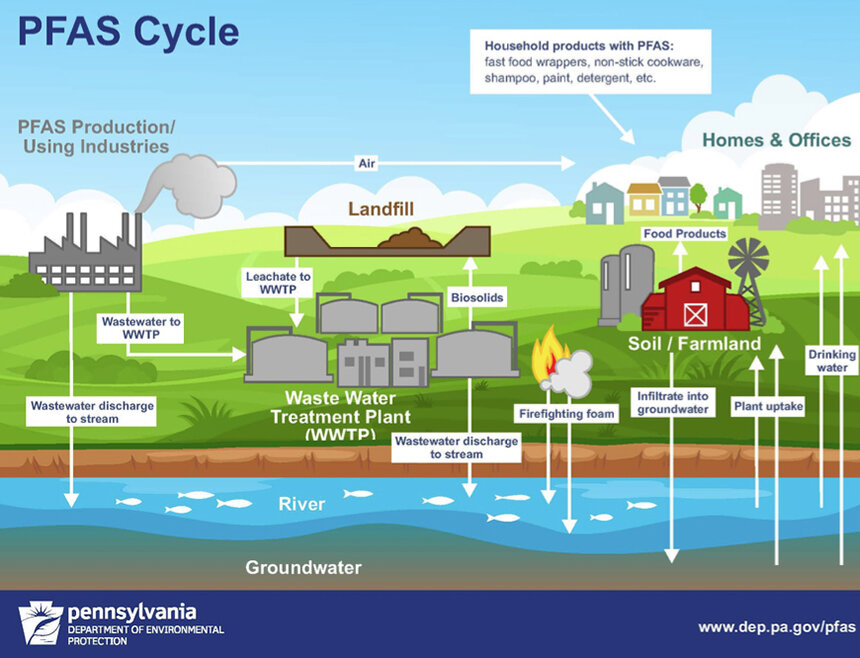Providence Water Proposes Plan to Eliminate Lead Pipes
April 3, 2020
Providence Water, the manager of the Scituate Reservoir and the largest provider of drinking water in Rhode Island, has a new plan to fix its lead-pipes problem.
In its latest multi-year rate plan, submitted to the Public Utilities Commission (PUC), Providence Water is asking for $2.75 million annually to replace both public and private service lines that contain lead.
“Due to the health dangers of drinking water with lead in it, especially for children, Providence Water is attempting to do everything in our power to eliminate the leaching of lead in our water,” Providence Water general manager Ricky Caruolo wrote in his testimony to the PUC.
In 2016, the General Assembly approved a bill that directed the Rhode Island Department of Health (DOH) to conduct testing of water supplies at all public schools and at state-licensed child-care facilities to determine the amount of lead in their drinking water. Six percent of the samples exceeded the Environmental Protection Agency (EPA) action level of 15 parts per billion.
Providence Water serves some 600,000 residents and has struggled to stay below federal lead-safety levels since 1997. Since 2007, Providence Water, which supplies about 60 percent of Rhode Island with its drinking water, has routinely exceeded EPA Lead and Copper Rule action levels.
The EPA requires utilities to test their drinking water once during two annual semesters: January through June and July through December. The federal agency allows a maximum of 15 parts per billion (ppb) of lead in water tests. The level of lead in Providence Water spiked to 30 ppb in 2009 and 2013, and hasn’t stayed below the EPA threshold for two testing periods since 2015. Anything in excess of 15 ppb triggers a notification to customers and a plan for corrective action.
With the additional funding, Providence Water hopes to stay below 10 ppb by replacing lead pipes and using the corrosion inhibitor orthophosphate.
Some 28,000 private service lines and 11,000 public service lines in the Providence Water system contain lead. The utility has been replacing about 215 private lines a year, and with the new funding would replace another 400 annually. Priority would be given to high-risk customers, such as homes with young children and pregnant mothers.
Millions of Americans get their water from systems that exceed acceptable lead levels, but the EPA is often lax in its enforcement of violations. According to the National Resources Defense Council, Providence is the third-worst city in the country for lead exposure from water.
Five years ago, DOH required Providence Water to create an expert advisory panel to help it address its lead problem.
Providence Water’s proposed new rate starts with a $13.3 million increase, a rise of 15.84 percent, or $5.69 a month. The rate would jump an additional $6.1 million in year two, for a 7.26 percent increase, or about $3 a month. In year three, the water rate would increase $1.76 per month, or 3.9 percent, to raise $3.5 million.
The $2.75 million designated each year for lead-pipe replacement would be supplemented with $250,000 already approved for pipe replacement.
Donald Pryor, a lecturer at Brown University’s Center for Environmental Studies, has long advocated for Providence Water to take more aggressive action to eliminate lead from drinking water. He referred to a study showing that 10 percent of Providence children entering kindergarten have elevated levels of lead in their blood.
He described the latest Providence Water proposal as a “remarkable and welcome change.” But he also noted that other cities such as Newark, N.J., have replaced lead pipes more quickly than than this plan offers. Even so, there are no assurances the Providence Water plan will be approved, and Pryor expects the terms will be modified as it moves through PUC deliberations.
Water districts that receive their water from the Scituate Reservoir, such as the Bristol County Water Authority, the Kent County Water Authority, and the city of East Providence, have all expressed concern about the rate increases in their filings with the PUC.
Currently, water customers pay for private lead-service pipe replacement themselves. An existing incentive offers a three-year zero-percent loan program provided through the Rhode Island Infrastructure Bank. Replacement costs are between $1,900 and $15,000, and only 274 customers have participated since the program was launched in 2018.
Any private-side lead-service line replacement includes removal of the public-side line. The newly proposed program only replaces the pipes that connect a building to a water main; it doesn’t replaces lead plumbing and fixtures within a building or home.
Providence Water said the rest of the revenue it is seeking will fund contractual pay raises and infrastructure projects. Added money is also needed because reduced water consumption has driven down revenue. Providence Water said less manufacturing and industrial productivity in the state is the reason for reduced water usage, as are water conservation efforts and more efficient household items such as washing machines, dishwashers, toilets, and shower heads.
“Water consumption also has a direct impact on most of our customers’ sewer bills, so our customers have become much more prudent with their water usage,” Caruolo said.
The rate proposal is also seeking $150,000 to buy and install lead-free water stations at 100 public schools serviced by Providence Water.
In its filing with the PUC, Providence Water highlights how it’s saving money on a solar array at its central office in Scituate. The 497-kilowatt system, installed in January 2018, is offsetting more than half of the power used at the facility, saving about $98,000 annually. More solar projects are expected as Providence Water seeks to offset 100 percent of its energy use through solar projects on property it owns. A nearly 5-megawatt array is planned for a 30-acre parcel owned by Providence Water in Johnston. The project is expected to save the utility up to $600,000 annually.
The proposed lead-service replacement program is a significant development for Providence Water and its customers, but the public utility that is owned by Providence and run as a department of the city can’t promote the program until it’s approved by the PUC.
PUC hearings for the rate increase were scheduled to begin March 30, but were postponed because of the coronavirus pandemic.



